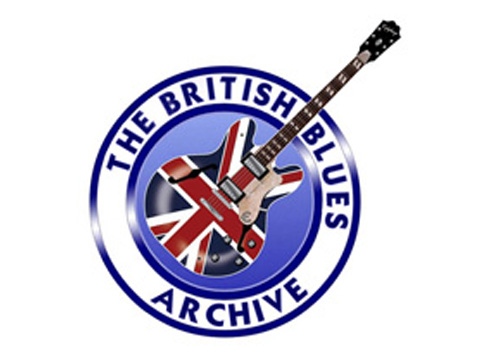BRITISH BLUES ARCHIVEWillie Mabon |  |
"I'm The Fixer" Willie Mabon Original USA Recordings Flyright FLY580
To understand how this came about one needs to examine Mabon's career. Born October 24, 1925 in Memphis, Tennessee where he was raised, schooled and actively encouraged by his mother to play gospel music on the harmonica, Willie, however, had other ideas and took more interest in the hillbilly way of playing the instrument as heard on various Memphis based Country- and-Western radio stations. For an inhabitant of a city so steeped in the blues tradition, Willie had surprisingly little knowledge of, or contact with, the local blues talent, but, under the circumstances, perhaps understandable: ‘I never did get to meet any of the blues musicians in Memphis. l was too young and we didn't go to concerts. There were so many places where kids weren't allowed.' During early 1942 his mother died and his father uprooted the family, taking them to Chicago to stay with relatives. Economic necessity forced Willie to take a day job in a Chicago factory but employed his spare time studying jazz piano under a doctor of music. His blues tutelage was from Big Maceo Merriweather and Sunnyland Slim's expertise and diversity of styles added to, and enhanced, his jazz grounding, bringing about a style that was slick and tutored producing a sophistication very rarely seen in a Chicago blues vocalist-pianist. During 1949 he cut what, at the time, he thought was a demo for Apollo Records under the pseudonym Big Willie (in reality this was a scheduled release). Mabon of course wasn't to know this, but it was a beginning. In 1953 he recorded ‘I Don't Know' for Parrot and in the same year it was re-released on Chess for whom it was a hit. This, as previously mentioned, marked the turning point in his career. For three years he cut many blues for Chess that have since become standards, such as: ‘I'm Mad', ‘The Seventh Son' (given world-wide fame by jazzman Mose Allison), and ‘Poison Ivy' (popularised in the Chicago clubs during the 60s by Buddy Guy). On leaving Chess he had a short stay at Federal in 1957 and an equally short period at Mad in 1960. His career was somewhat limited during the early 60s due to illness. In 1962 he moved on to Paul Glass's Formal/USA concern. This change brought about a flurry of local hits on USA, most of which are present The predominant feature of Mabon's 1963 USA recordings is the presence of a second keyboard— namely an organ! Although a very penetrating instrument it is handled by Billy Emerson with remarkable finesse, at times played with gospelly fervour as evinced by ‘Lover Gal'; or filling a harmonica role as on the minor hit ‘Just Got Some'. Mabon's muscular, rolling barrelhouse piano is sadly not much in evidence on these sides, due to the organ taking most of the leads, but we get a nice glimpse of his capabilities in the piano break on ‘I'm The Fixer'. Like most of his contemporaries, Willie Mabon wasn't beyond milking ‘hits' for what they were worth and ‘I Don't Know' crops up in the guise of ‘Some Time I Wonder', whilst ‘Fannie Mae' (recorded for Formal) appears under the title ‘I'm Hongry', a strange conglomeration of songs including two verses from Dr. Clayton's ‘On The Killin' Floor'. The lazy, Louisiana influenced instrumental, ‘Harmonica Special', recalls the racked harp sounds of Slim Harpo, but in Willie's case he's playing the piano at the same time rather than guitar. ‘New Orleans Blues' keeps us in the South in lyric, but very much on the West Coast for the vocal - pure Charles Brown - with some Peter Lewis influenced guitar. The banal lyric to ‘Don't Let That Music Die', a Ray Charlesesque ‘everybody take-your-solo' session filler, is mercifully saved by the musicians who do take their solos, especially guitarist Eugene Pearson. Until recently the session men on Willie's USA sides have been open to speculation, but the discography as given here— courtesy of Bez Turner and Blues Unlimited—is far more likely than earlier versions. Following these sessions, he retired from recording to manage his own night club which was a short lived enterprise and Willie took to driving a truck for a living. Then, in 1969, he signed to Blue On Blues and cut an above average album of remakes and new material. He toured Europe during 1973, visiting London the same year, leaving in his wake a flood of ecstatic reviews. The last we saw of Mabon was during 1980, when he was rushed over to London to stand-in for an errant Otis Rush. With no rehearsal, and a band that had come prepared to back Rush, Mabon, through no fault of his own, left behind him very unfavourable reviews —I can still see him now, manfully attempting to get the band to stop in the breaks of ‘I Don't Know' (a tune they'd patently never heard) and failing miserably. Let's hope that the release of this entertaining USA material goes some way in expunging those memories and brings Willie back to these shores under better conditions. Alan Balfour, January 1981 |
| © BRITISH BLUES ARCHIVE 2018 |